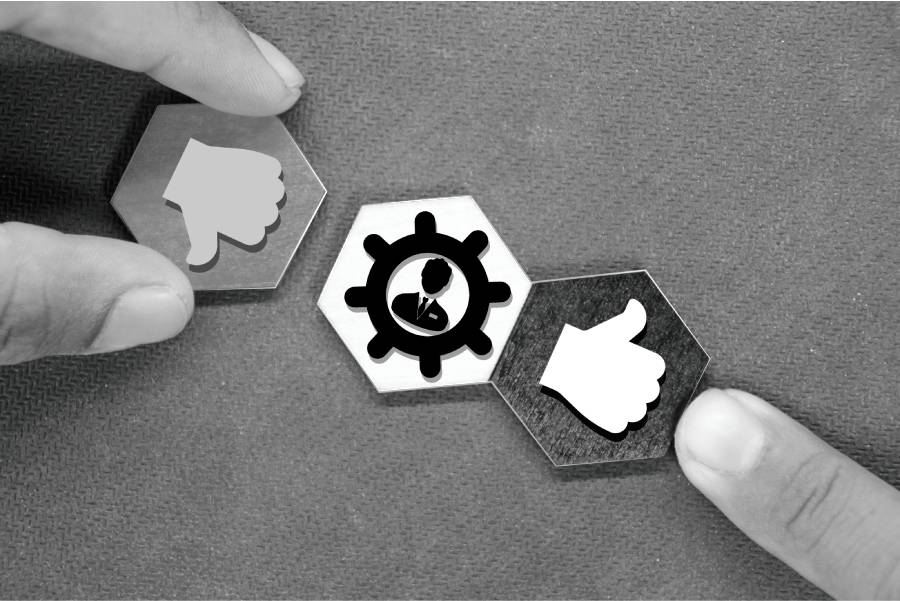The Pros and Cons of Franchising – Learn More
Franchising involves a franchisor licensing its business model and brand to a franchisee, who operates its own business using the franchisor’s system and support.
It can take many different forms, from fast food restaurants to retail stores to service businesses. It offers many benefits to both franchisors and franchisees, including established brand recognition, a proven business model, training and support, marketing and advertising assistance, and group purchasing power.
In this article, we will take a deep dive into the world of franchising, exploring the pros and cons that come with this business model.
If you have questions about franchise pros and cons, the experts at Mountain Valley Group can help. Reach out to us today to learn more.
Franchising Pros
Here are some of the benefits that come with franchising:
Established brand recognition
One of the most significant advantages of franchising is the established brand recognition that comes with it. Customers are already familiar with the brand, and this can be a powerful tool for attracting and retaining customers. This brand recognition can be especially beneficial for entrepreneurs who are starting out in the business world and do not have an established reputation.
Customer familiarity
Customers are more likely to visit a business with a well-known brand than one that is unknown. With a franchise, customers already have a level of familiarity with the brand and the products or services offered. This familiarity can lead to increased sales and a better chance of success.
Trustworthiness and credibility
Franchises often have a reputation for being trustworthy and credible. Customers know that the products or services they receive from a franchise will be of a certain standard, and this can help build trust and credibility in the eyes of the customer.
- Proven business model
Another advantage of franchising is the proven business model that comes with it. The franchisor has already developed a successful business model, and the franchisee can benefit from this experience.
This can be especially helpful for entrepreneurs who are new to the business and may not have the skills or experience to develop their own business model.
Operational efficiency
Franchisees benefit from the operational efficiency that comes with a proven business model. The franchisor has already developed standard operating procedures, which can be replicated across multiple locations. This can lead to increased productivity and efficiency, which can result in higher profits.
Risk reduction
Since the business model has already been proven successful, the risk of failure is reduced. Franchisees have a better chance of success because they are following a proven system, rather than trying to develop their own from scratch.
Training and support
Franchisors provide training and support to their franchisees, which can be a significant advantage for entrepreneurs who are new to the industry. This training can include initial training programs, ongoing support and resources, and access to online training materials.
Initial training programs
Franchisors provide initial training programs to franchisees, which can include everything from product knowledge to marketing strategies. This training can help franchisees get up and running quickly and efficiently.
Ongoing support and resources
Franchisors also provide ongoing support and resources to their franchisees. This support can include everything from assistance with hiring and training employees to help with marketing and advertising campaigns.
Marketing and advertising assistance
Franchisors often provide marketing and advertising assistance to their franchisees. This can include national and regional advertising campaigns, as well as local marketing support.
National and regional campaigns
Franchisees benefit from national and regional advertising campaigns that are paid for by the franchisor. These campaigns can help increase brand awareness and attract new customers.
Local marketing support
Franchisors also provide local marketing support to their franchisees. This support can include assistance with developing marketing strategies and campaigns that are tailored to the local market.
Group purchasing power
Franchisees benefit from group purchasing power, which can lead to lower costs and better supplier relationships. Since franchisees are part of a larger network, they can leverage the buying power of the entire network to negotiate better prices and terms with suppliers.
Lower costs
Franchisees benefit from lower costs due to the group purchasing power of the franchisor. This can lead to increased profitability and a better chance of success.
Supplier relationships
Franchisees also benefit from better supplier relationships, as the franchisor has established the agreements required to fulfill the products or services provided by the franchise.
Franchising Cons
While franchising offers many benefits, it also comes with a few drawbacks. Here are some of the cons that come with franchising:
- High initial investment
One of the biggest drawbacks of franchising is the high initial investment required. Franchisees must pay franchise fees and startup costs to the franchisor, which can be a significant expense.
- Franchise fees
Franchise fees can range from a few thousand dollars to hundreds of thousands of dollars, depending on the franchise. These fees are paid to the franchisor for the right to use their brand and business model.
- Startup costs
In addition to franchise fees, franchisees must also pay startup costs. These costs can include everything from leasehold improvements to inventory and equipment. The total cost of these startup expenses can vary greatly depending on the franchise.
- Ongoing royalties and fees
Franchisees must also pay ongoing royalties and fees to the franchisor. These fees can include royalty payments, which are a percentage of gross sales, and advertising and marketing fees, which are used to fund national and regional advertising campaigns.
- Royalty payments
Royalty payments can be a significant expense for franchisees, as they are based on a percentage of gross sales. These payments can reduce profitability and limit the franchisee’s ability to reinvest in the business.
- Advertising and marketing fees
Advertising and marketing fees are used to fund national and regional advertising campaigns, which can be expensive. Franchisees must pay these fees, regardless of whether they see a return on their investment.
- Limited creativity and control
Franchisees are required to adhere to corporate policies and restrictions on products and services, which can limit their creativity and control. Franchisees must follow the franchisor’s established business model, which can leave little room for innovation.
- Adherence to corporate policies
Franchisees must follow the franchisor’s established corporate policies, which can limit their ability to make decisions based on local market conditions. This can be a disadvantage in highly competitive markets.
- Restrictions on products and services
Franchisees must also adhere to restrictions on products and services. Franchise agreements may limit the types of products or services that franchisees can offer, which can limit their ability to differentiate themselves from the competition.
Dependence on the Franchisor
Franchisees are dependent on the franchisor for corporate decisions and direction, which can lead to conflicts of interest. Franchisees must follow the franchisor’s lead, even if it goes against their own business instincts.
- Corporate decisions and direction
Franchisees are dependent on the franchisor for corporate decisions and direction. This can be a disadvantage if the franchisor makes decisions that are not in the best interest of the franchisee.
- Potential conflicts of interest
Franchisees must follow the franchisor’s lead, even if it goes against their own business instincts. This can lead to conflicts of interest between the franchisor and the franchisee.
- Territorial limitations
Franchise agreements often come with exclusive territories, which can limit the franchisee’s ability to expand. Franchisees may not be able to open additional locations in certain areas, which can limit their potential for growth.
- Exclusive territories
Exclusive territories can limit the franchisee’s ability to expand. Franchisees may not be able to open additional locations in certain areas, even if they believe there is a demand for their products or services.
- Encroachment and competition
Franchise agreements may also include restrictions on encroachment and competition. Franchisees may be prohibited from opening a location too close to another franchisee, which can limit their potential for growth.
Choosing the Right Franchise
Choosing the right franchise is an important decision that requires careful consideration. Here are some factors to consider when choosing a franchise:
Let a franchise consultant guide you
Franchise consultants can provide valuable guidance and support when choosing a franchise. They can help you identify your strengths and weaknesses, assess your financial situation, and determine which franchise opportunities are the best fit for you.
Self-assessment and goals
Before choosing a franchise, it’s important to conduct a self-assessment and determine your personal and professional goals. This can help you determine which franchises align with your values and interests.
Industry and market research
Conducting industry and market research can help you determine which franchises have the best potential for success. Look at market trends and growth potential for the industry, and assess the competition in your target market.
Franchise due diligence
Before investing in a franchise, it’s important to conduct due diligence to ensure that the franchise is a good fit for you. This includes reviewing the franchise disclosure document (FDD), speaking with current and former franchisees, and researching the franchisor’s reputation.
Franchise Disclosure Document (FDD)
The FDD is a legal document that provides detailed information about the franchise, including the franchisor’s financial statements, the franchisor’s history, and the franchise agreement. Reviewing the FDD can help you understand the franchise’s financial health and potential for success.
Speaking with current and former franchisees
Speaking with current and former franchisees can provide valuable insight into the franchise’s operations and potential for success. Ask about their experiences with the franchisor, their level of satisfaction with the franchise, and their financial performance.
Researching the franchisor’s reputation
Researching the franchisor’s reputation can help you determine whether they have a history of success and a good reputation in the industry. Look for reviews and testimonials from current and former franchisees, and assess the franchisor’s financial health and stability.
Legal and financial considerations
Before investing in a franchise, it’s important to consider the legal and financial implications. This includes assessing the franchise fees and ongoing expenses, as well as the legal obligations outlined in the franchise agreement.
Franchise fees and ongoing expenses
Franchise fees and ongoing expenses can vary greatly depending on the franchise. Review the franchise agreement carefully to understand the fees and expenses you will be responsible for, and assess whether these expenses are realistic based on your financial situation.
Legal obligations
Franchise agreements typically include legal obligations that must be met by the franchisee. These obligations can include restrictions on the products and services offered, marketing and advertising requirements, and territorial restrictions. Review the franchise agreement carefully to ensure that you are comfortable with these obligations.
Balancing the pros and cons
When choosing a franchise, it’s important to balance the pros and cons to determine whether the franchise is a good fit for you. Consider the benefits of the franchise model, as well as the drawbacks, and assess whether the franchise aligns with your personal and professional goals.
Making an informed decision
Choosing a franchise is a significant decision, and it’s important to make an informed choice. Take the time to research your options, assess your personal and professional goals, and consider the legal and financial implications before making a final decision.

Bottom Line – Pros and Cons of Franchising
Franchising can be a rewarding and profitable business model for the right entrepreneur. By weighing the pros and cons and conducting thorough research, entrepreneurs can make informed decisions and take advantage of the benefits that franchising has to offer.
Let the pros at Trusted Franchise Consultants guide you through the franchise process. We’ll help you understand the pros and cons of franchising and guide you through each step of the journey.
Frequently Asked Questions
What Is The Average Cost Of Starting A Franchise?
The average cost of starting a franchise can vary greatly depending on the franchise. Franchise fees and startup costs can range from a few thousand dollars to hundreds of thousands of dollars. On average, expect to pay a minimum of $50,000 to start your franchise.
How Long Does It Take To Start Making A Profit?
The time it takes to start making a profit with a franchise can vary depending on the franchise and the market conditions. Some franchises may start making a profit within the first year, while others may take several years to become profitable.
Can I Negotiate Franchise Terms With The Franchisor?
Franchise terms are typically non-negotiable, as they are outlined in the franchise agreement. However, it’s important to review the franchise agreement carefully and ask any questions or raise any concerns before signing.
What Are The Most Common Reasons For Franchise Failure?
The most common reasons for franchise failure include lack of capital, poor location, lack of support from the franchisor, and competition from other franchises or independent businesses.
Can I Own Multiple Franchises Under Different Brands?
Yes, it’s possible to own multiple franchises under different brands. However, it’s important to review the franchise agreements carefully and assess the fees and expenses associated with each franchise before investing.









